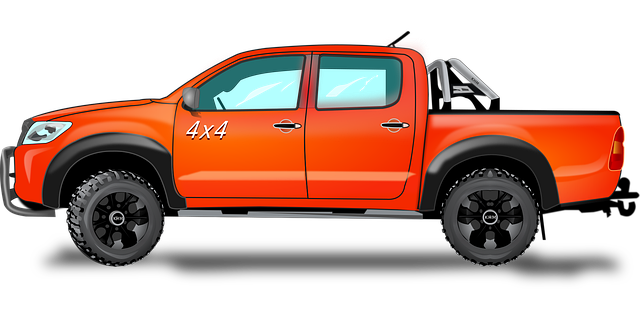Receiver hitches are vital Brownsville fleet Truck repair parts for secure trailer hitching, ensuring efficient cargo transport. They vary in type (Class I, II, III) based on towing capacity and vehicle compatibility. Choosing the right hitch requires understanding truck specifications and considering part quality from reputable brands. Regular maintenance, including visual inspections and lubrication, is crucial for optimal performance. Issues should be addressed by professional mechanics with appropriate Brownsville fleet Truck repair parts.
Receiver hitches are essential components for towing and hauling in Brownsville fleet truck repairs. They come in various types, each with unique advantages and applications. Choosing the right hitch for your needs is crucial, especially when selecting appropriate Brownsville fleet truck repair parts. This article offers a comprehensive overview of different receiver hitch types, maintenance tips, and troubleshooting to ensure optimal performance for all your towing requirements.
- What are Receiver Hitches?
- Types of Receiver Hitches: A Comprehensive Overview
- Choosing the Right Brownsville Fleet Truck Repair Parts for Your Needs
- Maintenance and Troubleshooting Tips for Optimal Performance
What are Receiver Hitches?

Receiver hitches are essential components in the fleet Truck repair parts landscape, facilitating the secure attachment of trailers to trucks. These hitches serve as the backbone for seamless cargo transport, enabling efficient logistics and moving operations, especially in vibrant Brownsville fleets. By ensuring a robust connection between the vehicle and trailer, receiver hitches play a pivotal role in enhancing safety and practicality during transportation.
Types of Receiver Hitches: A Comprehensive Overview

Receiver hitches come in various types, each designed for specific towing needs and vehicle compatibility. Among the most common are class I, II, and III hitches, differentiated by their weight capacity and setup. Class I hitches, often referred to as “pin and hook” systems, are suitable for light-duty towing, typically up to 2,000 lbs (907 kg). They connect directly to the vehicle’s frame, making installation relatively straightforward. Class II hitches, on the other hand, are more versatile and can handle heavier loads, usually between 3,500 to 10,000 lbs (1,588–4,536 kg), by utilizing a trailer tongue or an integrated gooseneck.
For heavy-duty towing needs, especially in the context of Brownsville fleet truck repair parts, class III hitches are the preferred choice. These hitches, also known as fifth-wheel hitches, require a bed-mounted track and a gooseneck ball on the trailer. They offer the highest weight capacity, often exceeding 10,000 lbs (4,536 kg), making them ideal for transporting large vehicles or specialized equipment. When selecting a receiver hitch, factors such as vehicle make and model, towing capacity requirements, and intended use should guide your decision to ensure safe and efficient towing.
Choosing the Right Brownsville Fleet Truck Repair Parts for Your Needs

When selecting Brownsville fleet Truck repair parts, understanding your specific needs is key. Different vehicles have diverse requirements, so take time to identify the exact make, model, and year of your truck. This ensures you source compatible parts that fit seamlessly, preventing any future issues.
Consider not just the functional aspects but also the quality and reputation of the parts supplier. Opt for trusted brands known for their durability and reliability. Regularly checking reviews and ratings from other fleet owners can be invaluable in making an informed decision.
Maintenance and Troubleshooting Tips for Optimal Performance

To ensure optimal performance of your receiver hitches, regular maintenance and prompt troubleshooting are key. Incorporating Brownsville fleet Truck repair parts into your routine can significantly enhance durability and reliability. Start with periodic visual inspections to identify any signs of wear or damage, such as loose connections or cracked components. Address these issues immediately using high-quality replacement parts available from trusted suppliers like the Brownsville fleet.
Additionally, lubricate all moving parts according to the manufacturer’s guidelines to prevent friction and corrosion. Regular cleaning ensures smooth operation and prolongs the lifespan of your hitch system. If you encounter any operational glitches, such as difficulty in coupling or uncoupling, consult a professional mechanic equipped with Brownsville fleet Truck repair parts for accurate diagnosis and timely repairs.
Whether you’re looking for replacement parts or seeking maintenance tips, understanding receiver hitches and their types is key to ensuring your Brownsville fleet truck repair needs are met. By choosing the right parts and implementing proper care, you can maximize performance and longevity. Remember to consult professionals for expert advice tailored to your specific vehicle requirements.



